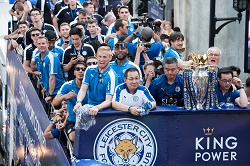Are disabled football fans still an afterthought in the Premier League?
A three-year EU-funded project, Football Research in an Enlarged Europe (FREE), which researched the importance of football with disabled supporters, crucially influenced recommendations made by the UK’s House of Commons Culture, Media and Sport Committee. In the Committee’s 16 January 2017 report, there is a strong call for legal sanctions to be taken against the wealthy football clubs of the Premier League who continue to neglect their disabled fans. High profile media reports such as a 2014 BBC investigation into whether the Premier League was failing disabled fans led the committee to open an inquiry into access to sport stadia. The BBC investigation highlighted amongst other things the poor provision of access to sporting grounds in the Premier League, with 17 of the 20 clubs in top-flight football failing to meet the needs of the disabled. Joyce Cook, chair of Level Playing Field charity said that ‘the experience for a disabled football fan is very varied, but it's nothing like that of a non-disabled fan.’ The EU-funded research carried out and published in the November 2016 ‘European Sport Management Quarterly’ by academic Dr Borja García-García, a senior lecturer in sport management and policy, at Loughborough University's School of Sport, Exercise and Health Sciences, underlined how clubs fail to provide inclusive access and understand the various forms of disability. ‘Those concepts need to be understood in a more holistic way, so access does not mean only getting into the ground and disability does not mean only a person in a wheelchair,’ stressed Dr Borja García-García. ‘In other words, both our research and the report share the opinion that the problem lies in the fact that clubs are simply ticking boxes of wheelchair seats provision’. A failure by the richer clubs to adapt all facilities from transport, parking, ticketing allocation, toilet and catering facilities, and make them more adaptable and accessible could lead to legal action. ‘If facilities are not appropriate, these supporters are therefore deprived on an important social experience that contributes to their integration in the wider community, to their social and mental well-being,’ shared Dr García-García. Hopefully Premier League clubs will now adapt to better serving the needs of their disabled fans, especially after the success of the London 2012 Paralympic Games. The 2012 Summer Paralympics were one of the largest multi-sport events ever held in the United Kingdom, breaking records for ticket sales and heightening the profile of Paralympians and shifting perceptions on disability. If football wishes to remain the most popular and global sport in the world then the richest clubs in the world, such as those in the Premier League, need to start setting an example and spend some money into making the game accessible to all and truly global. The FREE project ended in March 2015 and aimed to understand the impact and increase awareness about the issue of cultural diversity, commonality and cultural change in the field of most popular culture in Europe - football. For more information, please see: CORDIS project page
Countries
France



